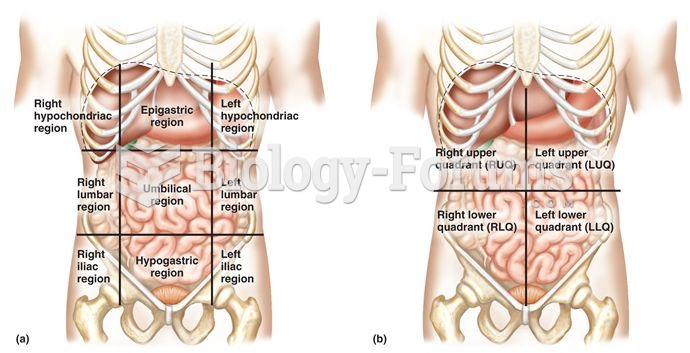|
|
|
Hippocrates noted that blood separates into four differently colored liquids when removed from the body and examined: a pure red liquid mixed with white liquid material with a yellow-colored froth at the top and a black substance that settles underneath; he named these the four humors (for blood, phlegm, yellow bile, and black bile).
There are major differences in the metabolism of morphine and the illegal drug heroin. Morphine mostly produces its CNS effects through m-receptors, and at k- and d-receptors. Heroin has a slight affinity for opiate receptors. Most of its actions are due to metabolism to active metabolites (6-acetylmorphine, morphine, and morphine-6-glucuronide).
More than 150,000 Americans killed by cardiovascular disease are younger than the age of 65 years.
Liver spots have nothing whatsoever to do with the liver. They are a type of freckles commonly seen in older adults who have been out in the sun without sufficient sunscreen.
The first oral chemotherapy drug for colon cancer was approved by FDA in 2001.
 Sceloporus undulates, the eastern fence lizard, is one of the most widely distributed lizard species
Sceloporus undulates, the eastern fence lizard, is one of the most widely distributed lizard species
 Female leopard in the Sabi Sands area of South Africa. Note the white spot on its tail, used for com
Female leopard in the Sabi Sands area of South Africa. Note the white spot on its tail, used for com
 A freshly applied autograft. Note that the donor skin has been perforated so that it can be stretche
A freshly applied autograft. Note that the donor skin has been perforated so that it can be stretche




